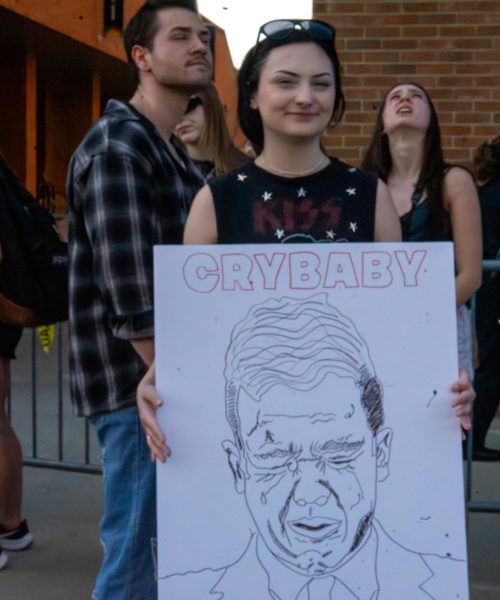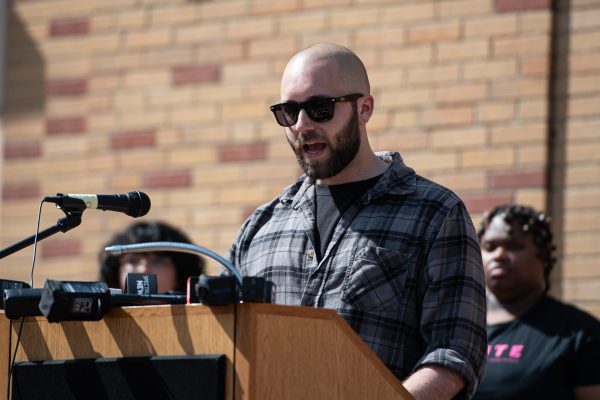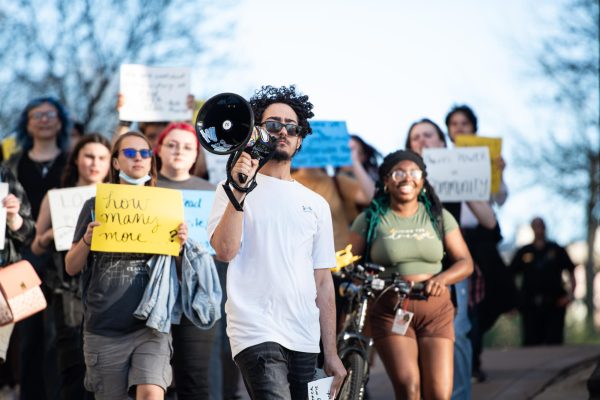Don’t get carried away
August 24, 2005
Campus towing fines heavy, easy to avoid
A tow truck driver jumps out of his truck and takes a look at your car, which is conveniently without a parking pass. He nods at his partner to go ahead and hook it up to the truck.
Two hours later, you prance out to the parking lot, ready to hop in your car and head home. Much to your surprise, you find an empty parking spot where your car used to be.
Yes, you’ve been towed.
To avoid this scenario and its expensive consequences, it’s important that you become familiar with on- and off-campus parking rules.
Most of the time, parking on-campus without a pass will only land you a parking ticket, but ticket prices increase as you accumulate them. Prices have increased for the fall semester and range from $15 to $50.
Once a person has accumulated nine tickets, he or she becomes a “frequent violator.” The next time that person is parked in violation, he or she will most likely be towed.
There are also a few lots on campus that close at night where cars are towed by the police. For example, the Rockwell and Summit East lots close at 10 p.m. and the “ C ” lot on South Lincoln Street closes at 7 p.m., according to Parking Services.
As a rule of thumb, it is a good idea to check with Parking Services before parking anywhere on campus without a pass.
Most off-campus parking is heavily monitored, but some places are known as towing hot spots.
Off-campus apartments can be very strict about their parking lots. Many leasing offices assign parking passes to residents and offer a visitor pass as well.
“We tow as a courtesy to residents,” said Phil Siegel, manager of Eagles Landing. “We are so close to campus that commuters fill up the parking lot and there’s no room for residents.”
Eagles Landing visitors who do not have a pass can park in the guest parking lot Monday through Friday from 7 p.m. to 7 a.m. Eagles Landing stops towing in both the main lot and the visitor lot at 7 p.m. on Friday and resumes towing at 7 a.m. on Monday.
Holly Park Apartments do not begin towing until 5 p.m. as a courtesy to prospective tenants, property manager Debby Wells said. They do, however, tow any vehicle that is backed into a parking space or parked illegally at any time.
Each apartment complex has its own towing policy, so it is a good idea to call the leasing office before you plan to park in its lot.
Several restaurants and stores close to campus also have strict towing policies. Look for signs that warn about towing and take them seriously.
Nikki Vodopivec, senior marketing and fashion merchandising major, made the mistake of not following the signs and ended up paying more than $100 to release her car from the impound lot.
“I parked in the Starbucks parking lot for my class at 7:45 in the morning and walked to Rockwell,” Vodopivec said. “My class was only 45 minutes long, and when I went back to get my car, it was gone.”
Do not make the mistake of thinking because you parked somewhere once and didn’t get towed, you are always safe to park in that lot. Tow trucks scan lots randomly.
If your car does get towed from an off-campus parking lot, check for signs at the lot with the name and phone number of the towing company. Be aware that most towing companies only accept cash, and the price to get your car back will usually increase each day.
City Service Co. & Towing is contracted by many off-campus parking lots and charges a maximum of $90 to release a car from its impound lot. They also charge a $12 storage fee per day, according to workers, and a $20 charge for any release after business hours.
If you spot your car being towed before the truck has left the lot, you may be able to pay a drop fee. State law requires this fee to release the car from the truck. You may not, however, completely waive the fee once the vehicle has been attached to the truck.
Contact general assignment reporter at Jessica Lentine at [email protected].























